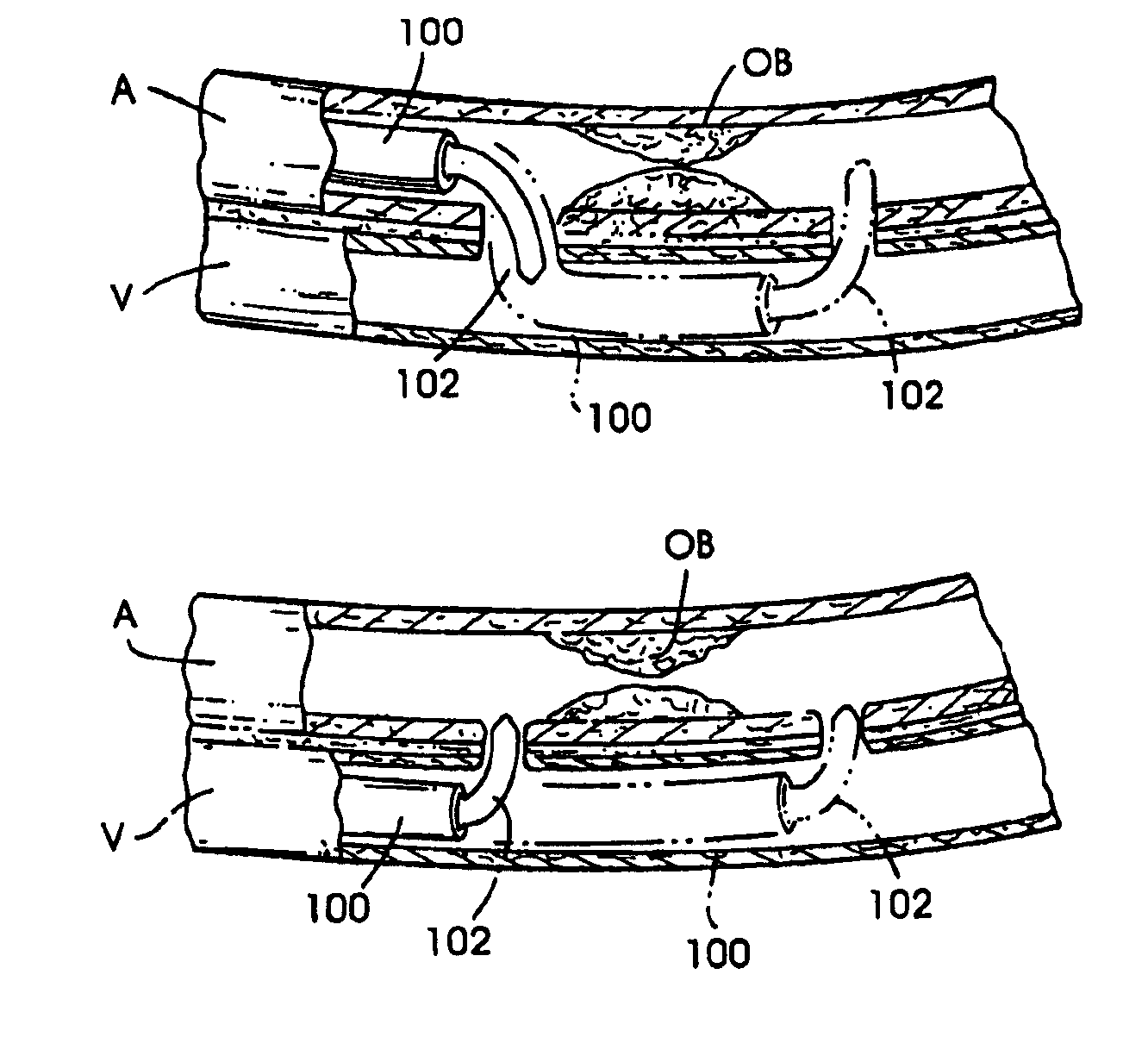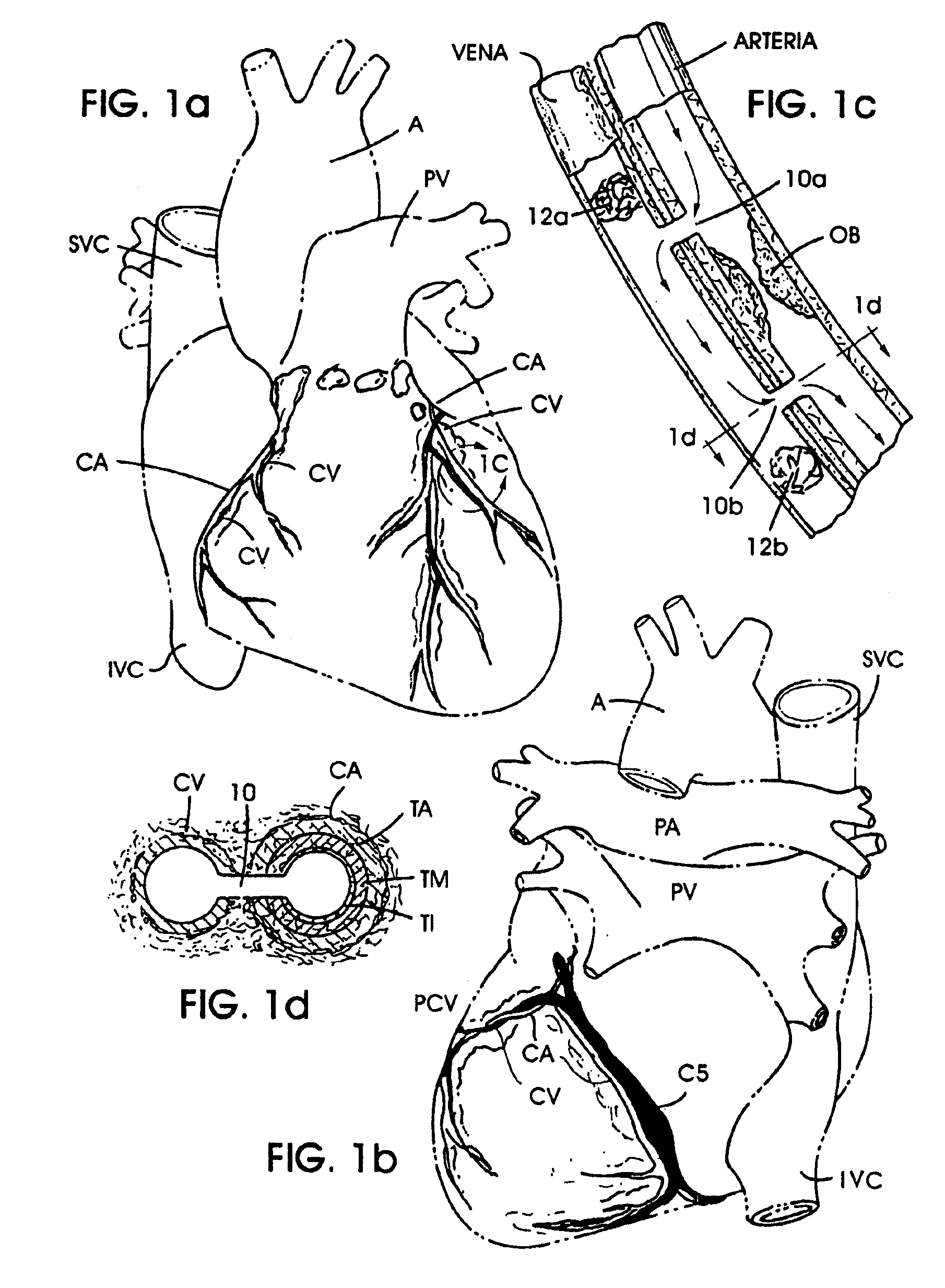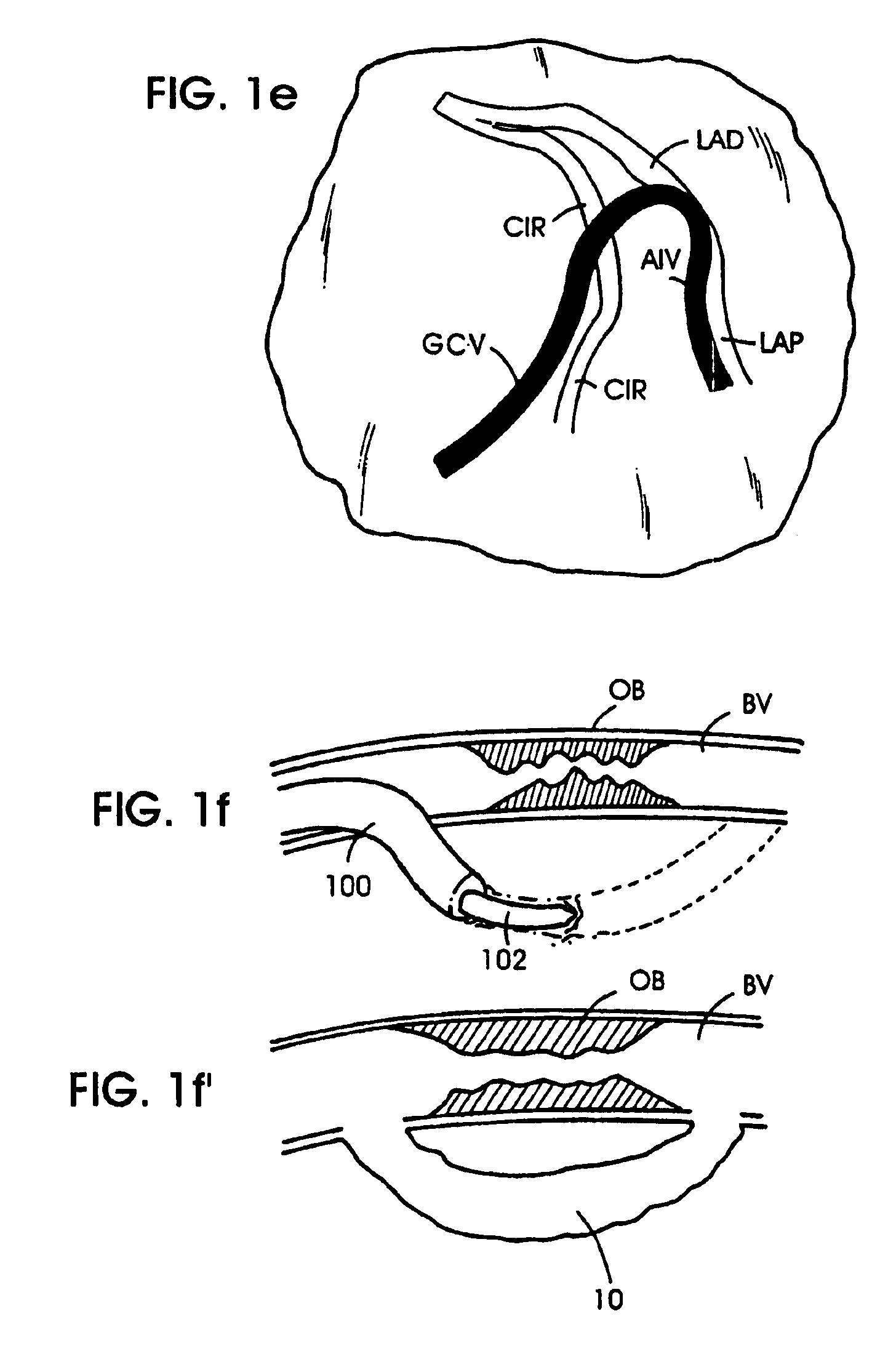Methods and apparatus for bypassing arterial obstructions and/or performing other transvascular procedures
a technology of bypassing and occlusion of arterial walls, applied in the field of methods and equipment, can solve the problems of inability to carry out coronary artery bypass surgery, inability to carry out surgery, inability to carry out surgery, etc., and achieve the effect of enhancing tissue perfusion
- Summary
- Abstract
- Description
- Claims
- Application Information
AI Technical Summary
Benefits of technology
Problems solved by technology
Method used
Image
Examples
first embodiment
[0252]FIGS. 7a and 7a′ show a tissue-penetrating element 102a. This embodiment of the tissue penetrating element 102a comprises an elongate, pliable needle formed of a pliable material such as polyimide tubing of the type availa ble commercially from MicroLumen, Inc., Tampa, Fla., and having a sharpened, beveled distal tip 300 formed thereon. An optional lumen 302 may extend longitudinally through the penetrating element 102a. A pre-bent, resilient member 304 is positioned longitudinally within the tissue-penetrating element 102a, or alternatively a pull wire.
[0253]When the element 102a is retracted within the lumen of the passageway-forming catheter 100, the resilient spine member 304a will be caused to assume a substantially straight or minimally bent configuration which conforms to the configuration of the catheter lumen and allows the tissue-penetrating element 102a to be fully retracted within the catheter lumen. However, when the tissue-penetrating element is exposed or advanc...
third embodiment
[0271]FIG. 8c shows a passageway modifying apparatus 500c which comprises an elongate tubular member having an annular, sharpened distal cutting tip 512 which is similar to the distal cutting tip 502 of the embodiment shown hereabove in FIG. 8a, W but which is further adapted to emit energy (e.g, heat, vibration, laser light, etc.). In this embodiment of the apparatus 500c, an energy transition wire or member 514 extends through the tubular proximal portion of the apparatus 500c and is connected to the annular distal cutting tip 512 so as to transmit electrical energy, ultrasonic vibration, or any other suitable form of energy to the distal tip 512, to facilitate advancement of the distal tip 512 to the desired blood vessel wall or other extravascular tissue. The hollow lumen 504 formed through the apparatus 500c permits that apparatus 500c to be advanced over a guide wire which has been positioned within the initially formed passageway or tract created by the tissue-penetrating mem...
fourth embodiment
[0272]FIG. 8d shows a passageway modifying apparatus 500d comprising an elongate tubular catheter 516 having a hollow lumen 504d extending longitudinally therethrough and an annular balloon 518 mounted on the outer surface thereof. A separate balloon infla tion lumen (not shown) will extend through a proximal portion of the catheter 516 to permit infla tion fluid to be injected into or withdrawn from the interior of the balloon 518. This embodiment of the passageway modifying apparatus 500d may be advanced over a guide wire GW which has been positioned within the initial passageway or tract created by the tissue-penetrating element, until the deflated balloon 518 is positioned within such initially created passageway or tract. Thereafter, the balloon 518 may be inflated to dilate or stretch the initially formed passageway or tract, to provide a modified extravascular passageway 10 having the desired diameter and / or configuration.
PUM
 Login to View More
Login to View More Abstract
Description
Claims
Application Information
 Login to View More
Login to View More - R&D
- Intellectual Property
- Life Sciences
- Materials
- Tech Scout
- Unparalleled Data Quality
- Higher Quality Content
- 60% Fewer Hallucinations
Browse by: Latest US Patents, China's latest patents, Technical Efficacy Thesaurus, Application Domain, Technology Topic, Popular Technical Reports.
© 2025 PatSnap. All rights reserved.Legal|Privacy policy|Modern Slavery Act Transparency Statement|Sitemap|About US| Contact US: help@patsnap.com



